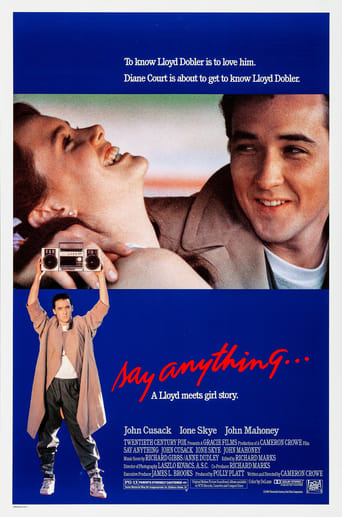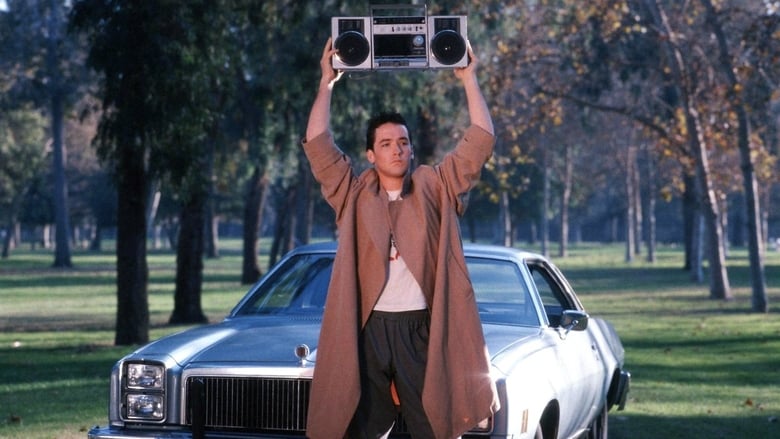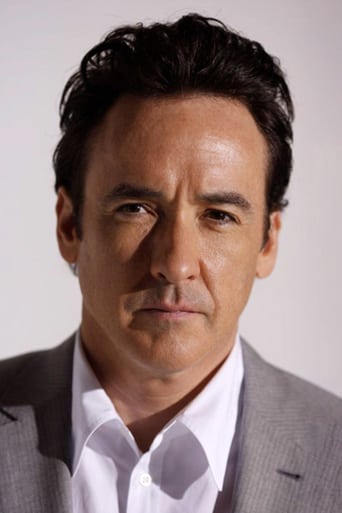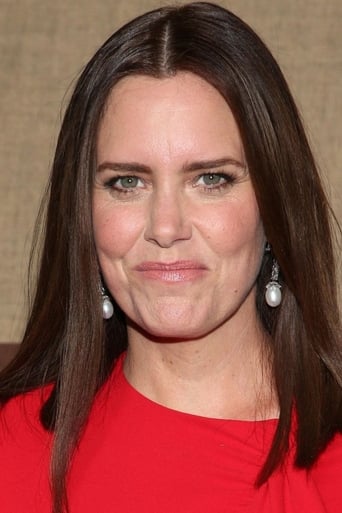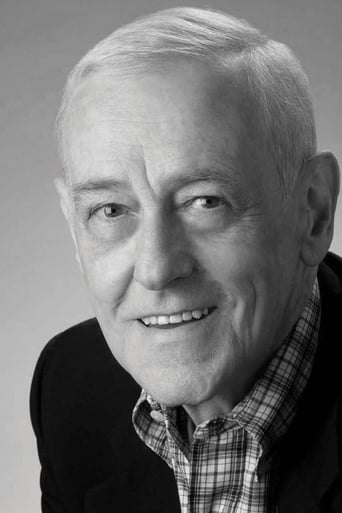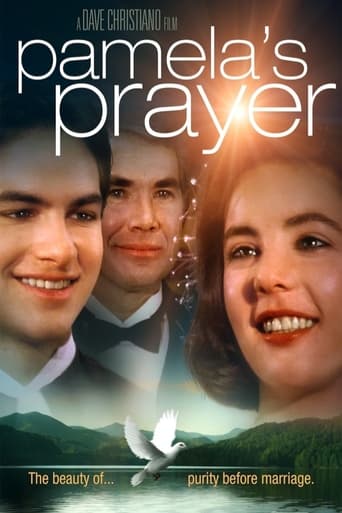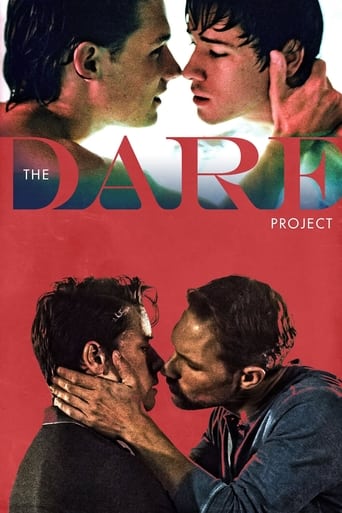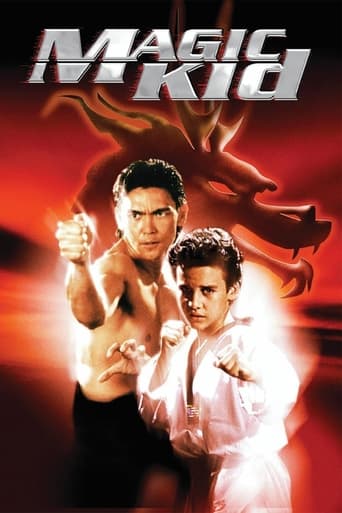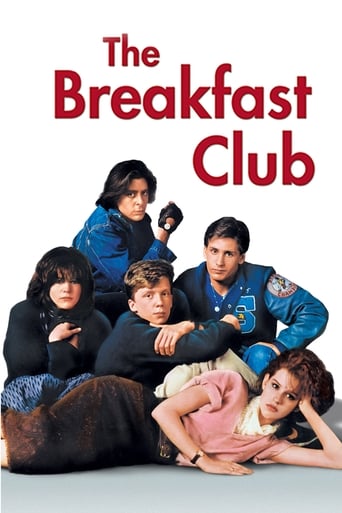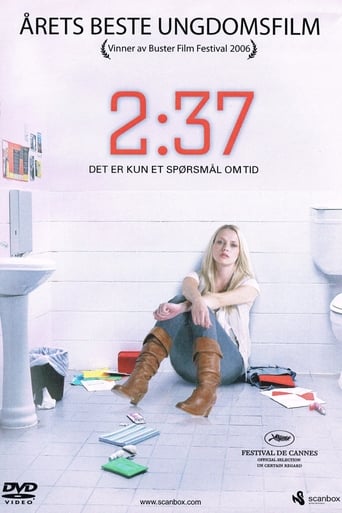Say Anything... (1989)
Lloyd, an eternal optimist, seeks to capture the heart of Diane, an unattainable high school beauty and straight-A student. He surprises just about everyone-including himself-when she returns the sentiment. But Diane's over-possessive, divorced Dad disapproves and it's going to take more than just the power of love to conquer all.
Watch Trailer
Cast


Similar titles
Reviews
Say what you might but this movie did nothing for me. Maybe even was a tad bit boring. I was waiting for that wow moment the whole time but nothing happened. Deeply disappointed.
Just before graduation, Lloyd Dobler (John Cusack) is convinced that he had a date with the valedictorian with a brain "trapped in the body of a game-show hostess" because they shared a table together while eating at the mall one day. After bantering back and forth with his best friends Cory (Lili Taylor) and D.C. (Amy Brooks) about the un-attainability of Diane Court's (Ione Skye) social position in relation to Lloyd's, he decides to go for it and call her. Perhaps no one is more surprised than Lloyd when Diane Court not only calls him back but agrees to go on a date with him. Diane accompanies Lloyd to an annual graduation party held at the home of a former student of the high school. Diane, who has largely been hidden away from her classmates studying and enjoying none of the social aspects of high school. Her classmates are glad to finally meet and get to know Diane in an informal setting, and Diane is pleased to finally feel as though she has friends in her life other than her hands-on father, James Court (John Mahoney). After much deliberation and internal conflict after being accepted to a fellowship program in England, Diane decides to keep seeing Lloyd, on a strictly platonic basis. Lloyd takes this understanding because to him, any time with Diane Court is better than time apart from Diane Court. Lloyd decides to make his summer ambition to spend as much time with Diane as possible before she leaves. Disappointed that his daughter has settled on a lesser-than-she "distraction", James quickly begins to care less about how Diane chooses to spend her time, as his own problems arise. Ultimately a decision must be made between the life Diane has always imagined, or has been imagined for her, and the one that is unfolding."I don't want to sell anything, buy anything, or process anything as a career. I don't want to sell anything bought or processed, or buy anything sold or processed, or process anything sold, bought, or processed, or repair anything sold, bought, or processed. You know, as a career, I don't want to do that." Lloyd may not know what he wants to do, but he knows what he doesn't want to do, and that may be more important. Lloyd Dobler is my favorite character, perhaps in cinema history. He's got a lot going for him, Lloyd is protective of his friends, he's introspective, independent, undaunted by going against social norms, he's willing and able to teach, as well as learn, and he's adaptable. Lloyd is also fully equipped with a myriad of characteristics that can't be taught. Lloyd is existential, and is constantly thinking about the world, Lloyd listens to people; he actually listens to people with the intent to hear what they are saying and respond/react to it. Lloyd is a person that genuinely wants those around him to be happy. He cares so deeply for his friends that he only wants the best for him. Maybe the best of Lloyd's innumerable endearing qualities is that he knows how to comfort people on an individual level. Who doesn't long for someone in their life that knows them so well, they know exactly how to make them feel better when they are down. That's Lloyd Dobler, and we should all be so fortunate to have someone like that in our lives. Maybe I just like this film so much because it came at the exact right moment that I needed it, or because I associate it with the best year of my life; either way, I am thankful for Say Anything... and of course, kickboxing, it really was the sport of the future.
Most know the iconic scene of Cusack on the front lawn, blasting jukebox held aloft. It's like Romeo under the balcony, yearning for a girl that is worlds away from his grasp. In this teen film from the late 80s the conflict is also initially set up as a clash of class; the diligent, good two-shoes valedictorian Diane, effortlessly beautiful in her spare time, and the roughly-hewn Lloyd, who tells of his aspirations to be a professional kick-boxer as if this was the punchline to a joke, and has missed all of careers advice sessions. What many don't remember is the material beneath these stereotypes, and how the film is not only an exploration of tender young love, but also the tenuous relationship between a father and his precious daughter, a prize won from divorce. The young couple aren't exempt from the usual teenage woes. Close friend Corey has gone through a breakup and has coped by writing no less than 63 songs about her hated ex; Lloyd later goes through the same process, documenting the past relationship through a tape recorder, his morose speech dripping with angst: "The rain on my car is a baptism. The new me." But Crowe doesn't put this in his film because he is mocking them. He knows all that they go through, how the teenage years heighten each emotion into infinity and make every triumph an explosion of joy and every setback the end of the world. When Lloyd visits his male friends after the breakup, their dialogue is typical of their age and maturity; they are immediately dismissive of the aforementioned ex, they suggest alternatives, they crassly write off the entire gender. But Crowe also recognises that this is how boys offer comfort in such a situation; by shielding insecurity and underplaying emotional blow-back. He understands how supremely self conscious and embarrassed people at this age are. The most honest moment of the film comes when Lloyd and Diane are wrapped up in an embrace in the back of a car in the middle of the night, and how Lloyd's shaking tells us more about their yearn and desire than any passionate kiss or "I love you" could. Diane's father is the obstacle that stands in their way. Crowe is smart enough to not draw him like the typical father in these types of movies, the stuck-up, stuffy stereotype that cares more about his family's reputation than his daughter's feelings. When Diane emerges from a night spent with Llyod, he knows that he has a right to be angry. In a lesser film he would plug his ears and immediately ground her. Here, he vents, but he also slows down enough to actually listen to his daughter. He does not approve, but he understands, and their relationship improves because of it. "You can say anything to me," is the title and theme, and John Mahoney does not only say it, but makes us believe it. In his actions he also makes it clear that everything he does is for the best of his daughter's future and well-being. This includes the revelation that his nursing home as been illegally embezzling money from its elderly patients. The intended effect of this twist is that it severely undermines anything that Jim has expressed beforehand. Crowe clearly sets up the switch between Lloyd and Jim, with him receiving the pen and being the one who is cast off by Diane. But the film stumbles here, because although Jim's imprisonment sours his good intentions, it does not invalidate his opinions of the person dating his daughter. Lloyd is still an airhead with no tangible future prospects. A noble airhead maybe ("I don't want to buy anything, sell anything, or process anything as a career."), and one that also has Diane in his best interests, but an airhead nonetheless. There is a better ending somewhere here, one that doesn't rely on smearing the father in order to ensure that the young couple are allowed to steal away carefree and in love.
Boy meets girl. Boy loses girl. Boy gets girl back again. This formula for a romantic comedy is all right when all you want to do is pass the time watching a mildly amusing movie. But when it is one of the movies listed in Steven Jay Schneider's "1001 Movies You Must See before You Die," you expect a little more. I suspect it is the fact that Cameron Crowe wrote and directed this movie that mesmerized critics into thinking it was something special.In addition to the formula noted above, this movie also employs the standard Hollywood device of having a woman forced to make a choice between love and something else, and then when she chooses love, as the formula requires, she ends up getting the something else too. Usually, the woman's choice is between a boring but respectable man whom her family approves of and who will be able to provide for her in comfort, and a charming man that she loves but who is poor and irresponsible. But when she decides to marry the poor guy, it turns out he has all the money. The movie "French Kiss" (1995) would be an example of this.In this movie, the woman is Diane, and she herself is the boring but respectable person whom her father, Mr. Court, approves of and who will be able to provide for herself in comfort owing to the fact that she is on her way to having a successful career after she gets out of college. This constitutes a slight variation in the formula. In any event, she must choose between her own education/career and Lloyd, the poor and irresponsible guy she loves whose idea of a career is that of being a kickboxer. Of course, there are movies in which a woman must choose between a career and a husband, but it is usually a glamorous career like show business, as in "Imitation of Life" (1959), not the kind of respectable career that Diane is pursuing.Actually, Lloyd's charm wears a little thin. He is living with his sister, who is a single mom, and he gets on her nerves with his antics. She makes a mark for the volume knob on his boom box, beyond which level he must not go, because it disturbs the neighbors. But he apparently does not care about that, because later in the movie, he takes the boom box and plays his and Diane's song at volume ten near her house in the middle of the night to prove his love for her, probably waking up all the neighbors on the block. It is one thing to be irresponsible. It is another thing to be an inconsiderate jerk. One wonders just how long Diane is going to put up with him, especially since his plan seems to be to just let her support him, as when he tells her father, "What I want to do for a living is be with your daughter." I guess you could say that in this movie it is the man who chooses between having a glamorous career like kickboxing and just being a house husband.Presumably as a way of avoiding the obvious formulaic nature of this film, a little trouble for Mr. Court with the Internal Revenue Service is added in. It begins rather melodramatically, with a couple of IRS agents showing up at his house at night. In real life, an auditor would begin his investigation by showing up at Court's place of business, which is a nursing home, and asking to see the books. In a subsequent scene, an IRS agent does show up at the nursing home and asks ominous questions like, "Your income, Mr. Court, hasn't changed substantially in seventeen years . Why would you stay so long with an operation that is clearly not a growth enterprise?" Wow! Isn't that incriminating!By this time, we are starting to think that the IRS agents are absurd caricatures, and that Court will be vindicated in the end. But it turns out that Court really is guilty. However, if he has been stealing money from his patients, then it would seem he is in more trouble than just not paying his taxes. There should still be fraud charges to deal with. But the movie glosses over that.Once we accept that Court is guilty of defrauding his nursing home patients, there are further incongruities that the movie presents without explaining. For example, Court goes to a store to buy some luggage, but all his credit cards are rejected. At the same time, Diane discovers thousands of dollars in cash squirreled away in a drawer. So, why didn't Court use the cash to buy the luggage? Cash leaves no tracks, and even the IRS would not have been aware of that purchase.Beyond that, the movie seems to at first to suggest that Court was stealing all that money in order to provide for his daughter, and so we are supposed to like him for that. But then it turns out that he was using all of his ill-gotten gains to buy collectibles, like a nine thousand dollar juke box. In other words, he's an idiot. The function of this IRS subplot is to break the excessive attachment between father and daughter so that she is free to leave him for Lloyd. But calling in the Feds so that a girl can leave home and marry the boy she loves is a bit much.

